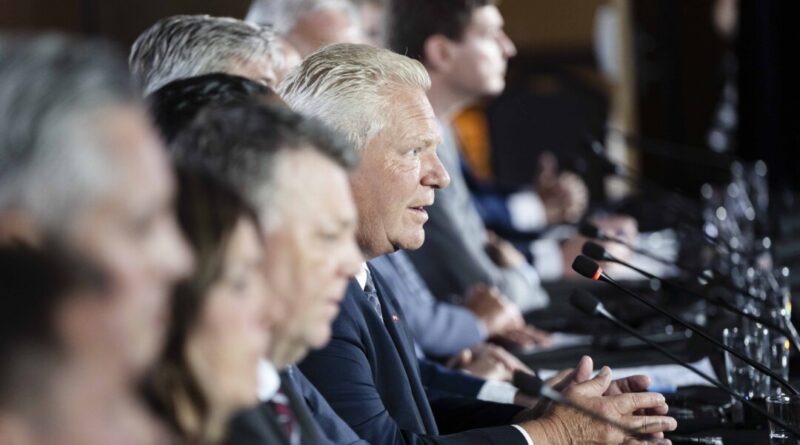Premiers from Across Canada Gather in Toronto to Discuss Tariffs, Trade, and Health Care
Canada’s premiers are meeting in Toronto today, with cross-border trade as a top priority, following a tariff threat from U.S. president-elect Donald Trump.
Trump is warning of a 25 percent import tariff on goods from Canada and Mexico upon taking office, until both countries address illegal border crossings and drug trafficking issues like fentanyl into the U.S.
The premiers have virtually met with Prime Minister Justin Trudeau to discuss tariffs, push for increased funding for border security, and plan a united response. However, this in-person gathering of the 13 provincial and territorial leaders marks the first time they strategize face-to-face.
Ontario Premier Doug Ford, hosting today’s meeting as the current Council of the Federation chair, is strongly advocating for retaliatory tariffs and threatens to cut off electricity supply to certain states in response.
On the other hand, Alberta’s Danielle Smith favors a diplomatic approach, opposing retaliatory tariffs and the halt of Alberta’s oil exports as suggested by Ford.
Today’s meeting will cover Canada-U.S. relations, energy security, and healthcare, according to Ford.
“Given the incoming U.S. administration, it’s crucial for Canada’s premiers to collaborate in safeguarding Canadian jobs and strengthening partnerships across the border,” Ford stated.
“Our focus as premiers is to preserve jobs, attract investments, and enhance healthcare, including expediting patient access to vital medications,” he added.
Ford also hinted at potential restrictions on the Liquor Control Board of Ontario, a major global alcohol purchaser, from buying U.S.-made alcohol.
While differing views on dealing with Trump’s tariff threat exist among the premiers, Ford emphasized their shared goal of enhancing border security and fulfilling Canada’s two percent GDP commitment to defense spending. Trudeau aims to achieve this target by 2032.
“My stance represents Ontario clearly and remains the same,” Ford remarked at a recent press briefing.
“I can’t speak for other provinces. Their approach is their choice. If Alberta or Quebec opt for diplomacy, that’s up to them,” he continued.
The premiers unanimously agree on pursuing a bilateral trade deal with the U.S., especially with the Canada-U.S.-Mexico Agreement under scrutiny in 2026. Ford expressed concerns about Mexico serving as an indirect route for Chinese goods.





